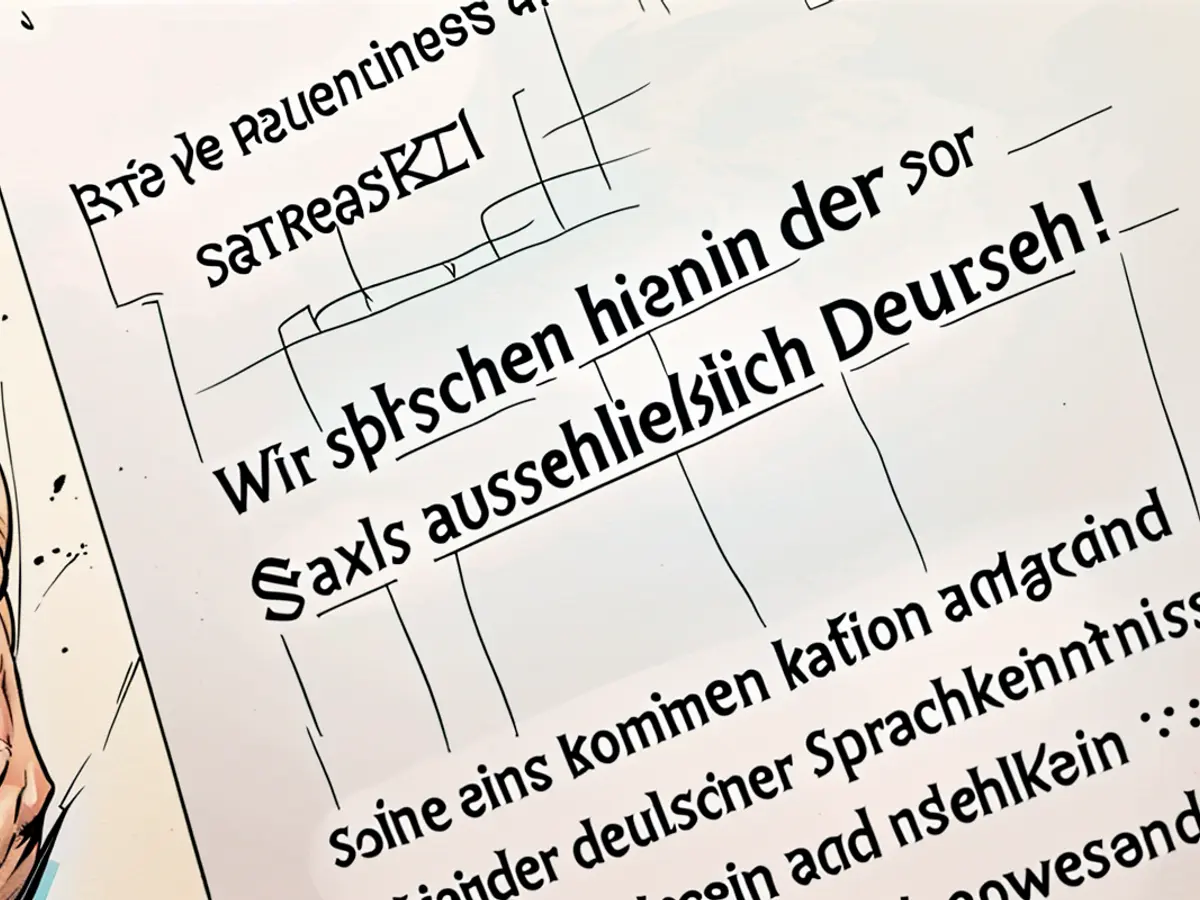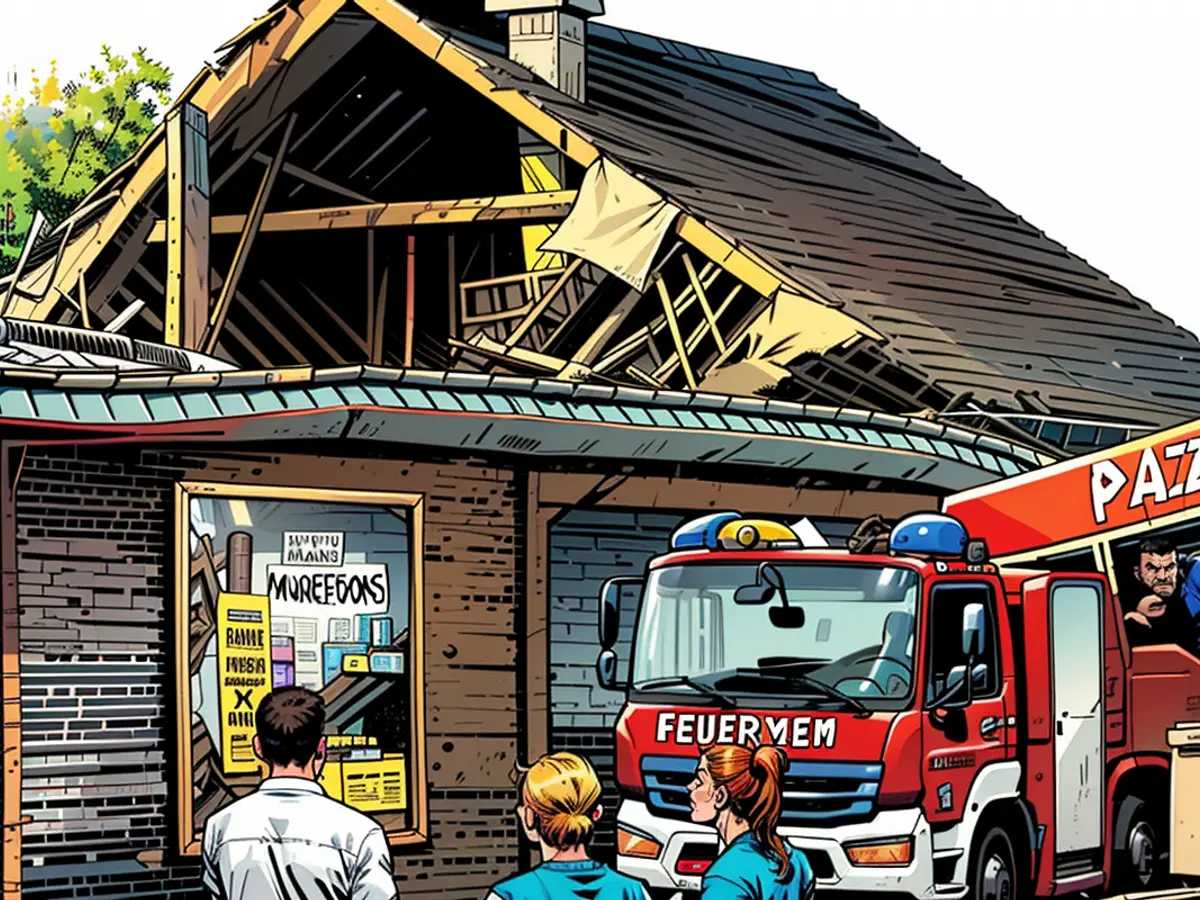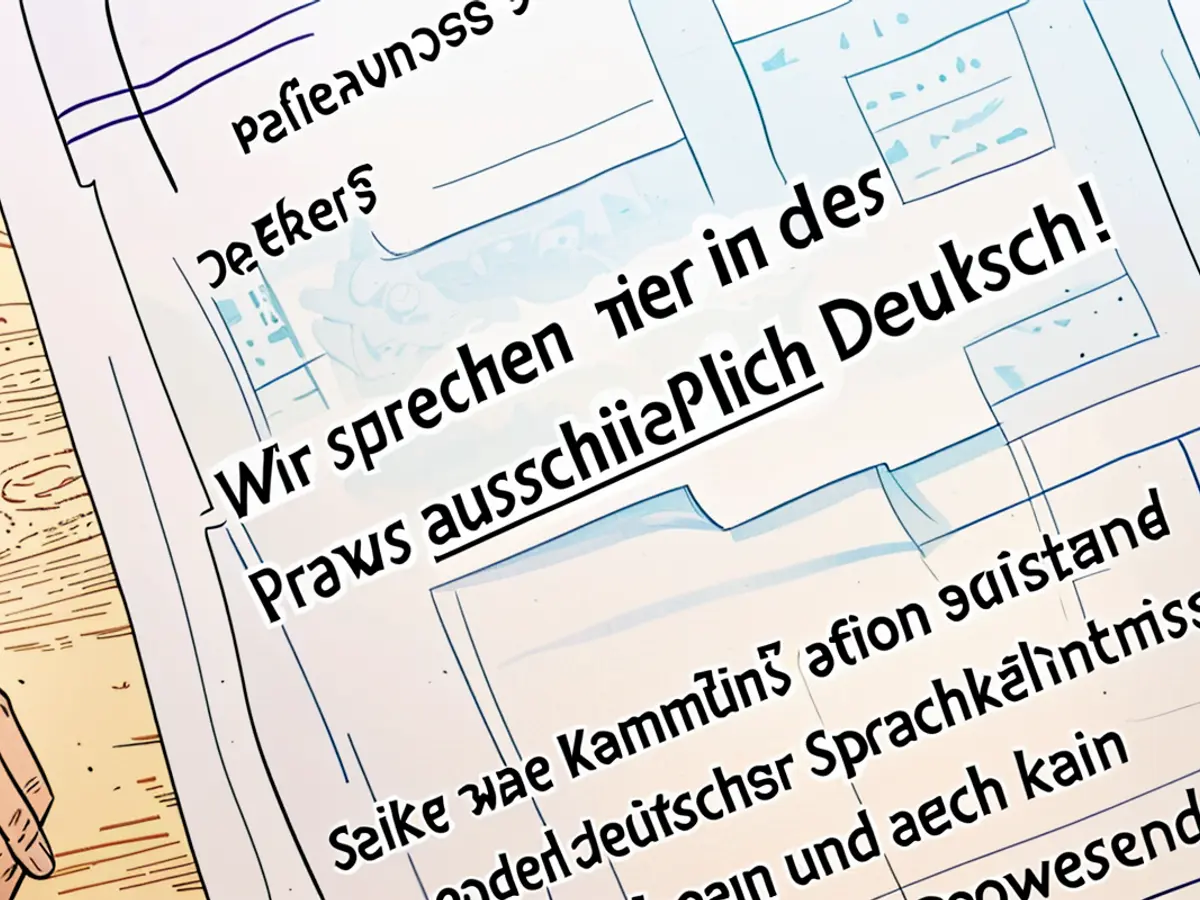Children's hospital only treats German-speaking patients
Small Sign, Big Impact: A Pediatric Practice Treats Only Patients With German Language Skills or Interpreters
A pediatric practice in Kirchheim unter Teck now only treats patients who speak German or come with an interpreter. "We only speak German in this practice!" is written on a sign at the reception of the practice near Stuttgart. This rule has sparked heated debates online and even racism accusations.
Pediatrician Ulrich Kuhn dismisses these accusations: Emergency cases would still be treated without an interpreter, he says. "We don't turn anyone away who doesn't speak German, that's not the point." However, he wants to treat patients safely, effectively, and reasonably. "That was the motivation behind putting up this sign." More and more parents with children were coming in who didn't understand a word of German, making treatment and diagnosis impossible, Kuhn says. "We couldn't explain to the patients and their parents what needed to be done."
"Every Time a Minor Bodily Injury"
The sign has been at the reception of the large Kirchheim pediatric practice for about two months. It also states: "If communication is not possible due to lack of German language skills and no interpreter is personally present, we must refuse treatment in the future, except in emergencies."
Kuhn explains this with an example. They couldn't ask about allergies or medical history, which naturally influences therapeutic measures, he says. "In the case of vaccinations, we commit a minor bodily injury every time, both in the sense of the Civil Code and the Criminal Code. We have to protect ourselves legally."
Mixed Reactions
According to Kuhn, around 3,500 children and young people are treated in the practice per quarter. He has been practicing with his colleague on site for about 23 years. Now, about half of the patients have a migration background.
Unlike outsiders on the internet, these patients do not see the sign as racism, Kuhn says. In fact, the practice has been supported in its approach. "Parents with a migrant background haven't reacted negatively, they've just done what we asked. They now bring interpreters." A practice on Lake Constance even asked if they could use the sign.
Sign to Stay Despite Criticism
Outside the practice rooms, reactions were mixed. While there was understanding, there was also clear criticism of the approach. "I am absolutely horrified," commented one user on the internet. Another described the sign as "bottomless, disrespectful, and racist."
The doctors are aware of the racism accusations, but the sign will stay. "We know that's not our motivation," Kuhn says. "The opinions of people who have nothing to do with our practice don't interest me greatly."
According to the State Chamber of Physicians in Baden-Württemberg, doctors can actually stop treating patients if there are fundamental communication problems. Professionally, doctors have a wide margin of discretion.
The Stuttgart Association of Doctors announces that a situation with insufficient language skills for doctors is virtually unsolvable. "On the one hand, they want to treat patients, on the other hand, they must inform patients," explains the association. For this, a minimum level of communication is required. Tools like Google Translate are only suboptimal and would cost a lot of time that could then not be available for other patients.
Legal Grey Area
The Professional Association of Paediatricians in Berlin also sees that a legally compliant information about vaccinations with language barriers is almost impossible. "Finding the right middle ground is the daily bread of a paediatric practice."
Meanwhile, the practice in Kirchheim unter Teck is clear: "This sign does not have a discriminatory statement," says paediatrician Kuhn. It has nothing to do with discrimination, but with reality. "If there is no interpreter and the patients do not understand us, we should not treat them. If we do it anyway, we are constantly in a legal grey area."
The Stuttgart Association of Doctors supports the Kirchheim practice, stating that dealing with patients with insufficient language skills is virtually unsolvable. The Professional Association of Paediatricians in Berlin agrees, noting that providing legally compliant information with language barriers is nearly impossible.
The Commission has highlighted the legal rights of doctors to refuse treatment in situations with fundamental communication problems, upholding the discretion of professionals in such matters.








